2022·China-Europe Seminar on Human Rights| Review of Academic Achievements of the Session I: Contribution of Science and Technology Development to Human Rights
On May 10, the "2022 China-Europe Seminar on Human Rights ", hosted by the China Society for Human Rights Studies and the Austria-China Friendship Association, organized by the National Human Rights Education and Training Base, Institute for Human Rights Law of Huazhong University of Science and Technology, and the Austria-China Law Association, was successfully held. This seminar has two main venues in China and in Austria, and the main venue in China is located in the Wutongyu Academic Exchange Centre of Huazhong University of Science and Technology. Representatives from the the UN’s Office of the High Commissioner for Human Rights and more than 100 human rights experts and scholars from the political, academic, legal, scientific and technological fields of China, Austria, France, the United Kingdom, Germany, Hungary, Italy, Greece, Spain, etc. discussed technology and human rights in an "online + offline" way.
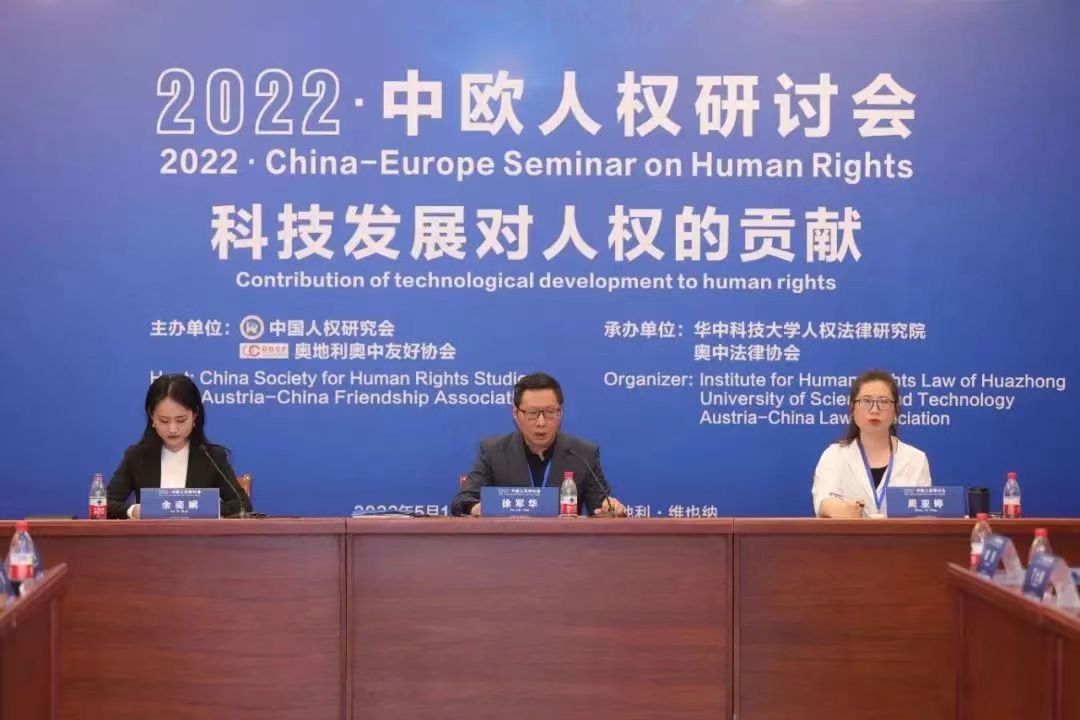
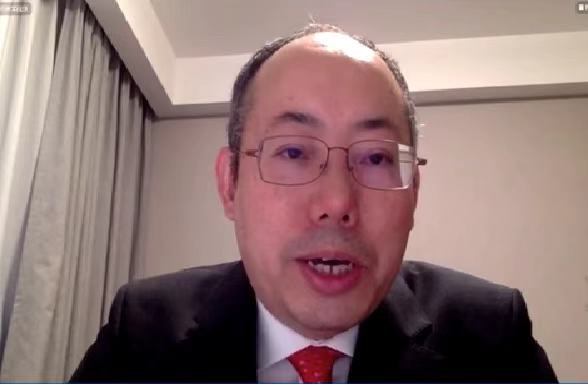
Language Rights as Human Rights in Africa: Using Technology to Promote Indigenous Languages in Africa

Mr. Adams Bodomo, Professor of African Studies, Linguistics and Literature at the University of Vienna and President of the International Federation of Modern Languages and Literatures (FILMM), spoke on the topic"Language Rights as Human Rightsin Africa: Using Technology to Promote African Indigenous Languages". He suggests that the study of language rights can enrich the general connotation of human rights and that language rights are also a proper part of human rights. Analyzing previous scholarly research on the relationship between language rights and human rights, he argues that the best way for linguists to address the concept of human rights for African languages is to embrace the theoretical concept of Pan-Africanism and to manage language resources to mitigate injustice and inequality on the basis of language. At the same time, he outlines the various activities undertaken by language activists and scholars using Internet technologies to protect indigenous languages, and advocates learning from each other and collaborating between different countries and regions to promote language human rights.
Technology Society and Human Rights Risks
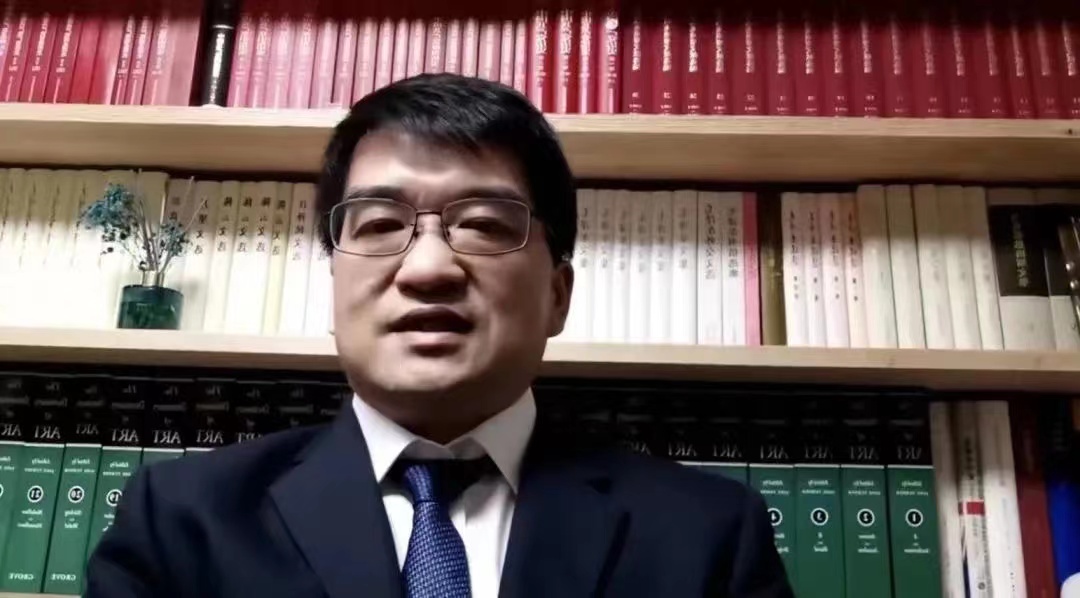
Professor He Zhipeng, Executive Director of the Human Rights Research Centre of Jilin University and Dean of the Law School, spoke on the topic"Technology Society and Human Rights Risks". He argued that in the digital age, it is important to pay attention to the new situation of human rights issues that have emerged. The digital age has given rise to a range of human rights issues, many of which have emerged from nothing, such as the digital divide. The digital divide has left the world in a state of uncertainty. Digital algorithms can also bring about a kind of corporate and individual or even state hegemony that curbs and combats specific individuals or groups. At the same time, we must be aware of the many enabling factors that come with big data and the digital age. Therefore, the question of how best to use digital technology to bring real benefits to humanity and bring more positive impacts on human rights is one that we must now face.
Making Good Use of the Digital Power in Human Rights Development
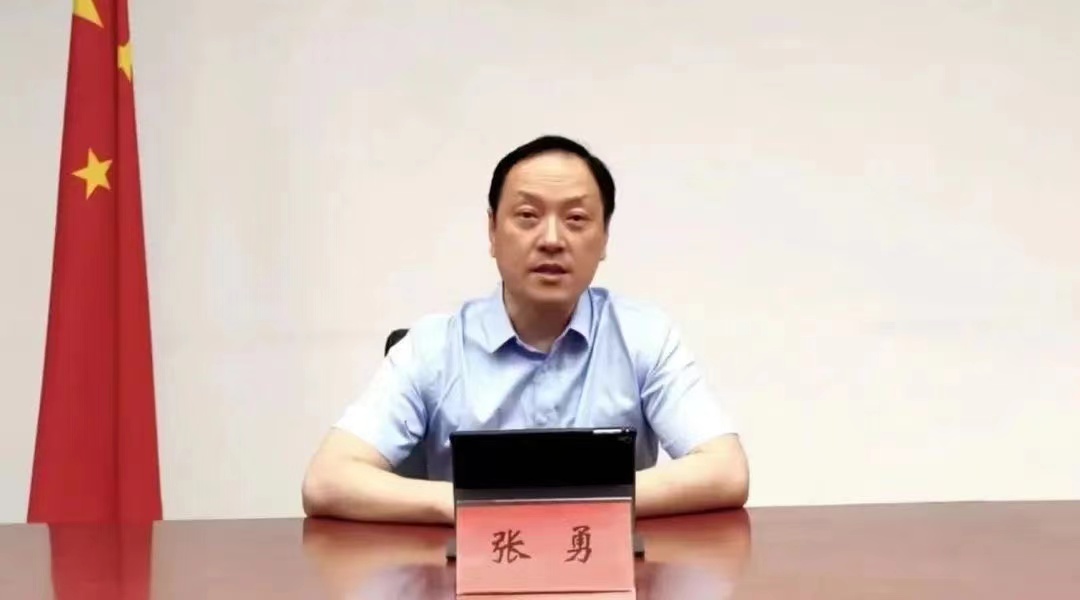
Mr. Zhang Yong, DeputyDirector andFirst-LevelInspector of the Network Communication Bureau of the Central Cyberspace Administration of China, spoke on the topic"Making Good Use of the Digital Power in Human Rights Development". He said that while digital technology has contributed to the development of human rights, it also poses unpredictable risks to human rights protection. He pointed out that the development of "Internet+" in the fields of healthcare, education, transportation, culture and people's livelihood has enhanced the people's sense of access, happiness and security. However, digital applications are developing unevenly in different regions, people and fields, and there are even many blind spots: algorithm abuse, platform monopoly, big data killing, personal information and data leakage, and other problems, which directly harm the legitimate rights and interests of the people. We should use the power of digital technology to bridge the information divide, strengthen the rule of law, and jointly promote the high-quality development of human rights.
From the Question of Future Human Rights to the Ethics of Benevolence

Ms.Sonia Bressler, founder of the publishing house La Route de La Soie, spoke on the topic"From the Question of Future Human Rights to the Ethics of Benevolence".She argued that human rights today should develop a new concept of the individual in a collective perspective and proposed that the future of humanity should build a "community of distance" and that the enhancement of human rights can be understood from an ethical and benevolent perspective: a critical application of data, but also a human perspective on social issues and an ethical reflection. She also pointed out that humans and machines cannot be separated. She also pointed out that humans and machines are inseparable and that combining human ethics with the memory and predictive capabilities of machines would help to safeguard the rights of all. She said that contemporary China is opening up a new way of guaranteeing human rights, which is to use advanced technology with a focus on compassionate care, which should be a better way of realizing human rights.
Science and Technology Support the Prevention and Control of the COVID-19, Putting people First and Life first
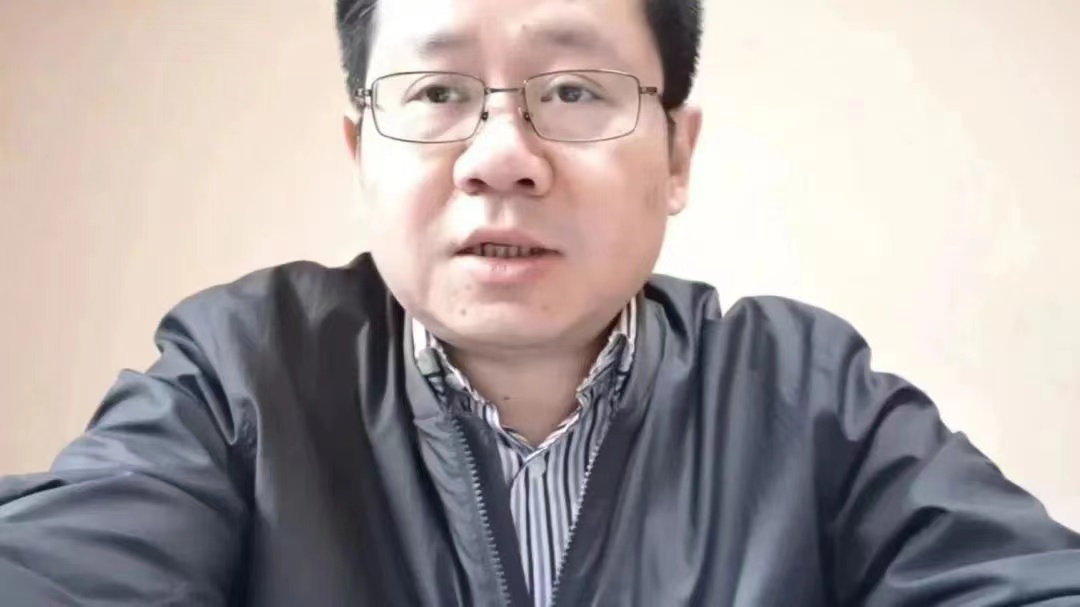
Mr. Wang Xiaolong, the Second-Level Inspector of the Social Development and Science and Technology Department of the Ministry of Science and Technology, spoke on the topic of"Science and Technology Support the Prevention and Control of the COVID-19, Putting people First and Life first". He pointed out that since the outbreak of the COVID-19, China has promptly launched scientific and technological research and emergency response, deployed on all fronts, and organized elite scientific research forces nationwide to fight the epidemic. From the beginning, Chinese researchers have been upholding the concept of a community of human destiny, strengthening international scientific and technological cooperation, and putting the people's right to health first. In conclusion, he pointed out that Chinese scientific research will continue to promote scientific research in depth and work hard to defend the right to life and health of every individual.
Science and Technology: a Booster for Human Rights Development

Mr.Zhao Yongxin, a senior journalist and editor-in-chief of the Science and Technology Interview Room of the Economic and Social Department of thePeople's Daily, spoke on the topic of"Science and Technology: a Booster for Human Rights Development". He shared two personal feelings: firstly, on the production side of scientific and technological progress, with the policy adjustment, the national agricultural science and technology level has been raised, farmers have changed their disadvantaged position in the past, and their production motivation and efficiency have been greatly increased, and their livelihoods have been greatly improved. Secondly, scientific and technological progress has benefited cancer patients. Following the launch of China's first new anti-cancer drug, a number of new drugs have been developed that are comparable in efficacy to imported drugs. He pointed out that China's science and technology innovation should adhere to three directions, namely to the frontiers of science and technology, to the main battlefield of the country, and to the needs in order to promote the advancement of pharmaceutical science and technology for the benefit of the people, and that this goal could not be achieved without the joint efforts of the government, companies and the public.
"Digital Attributes" of Human and their Legal Protection
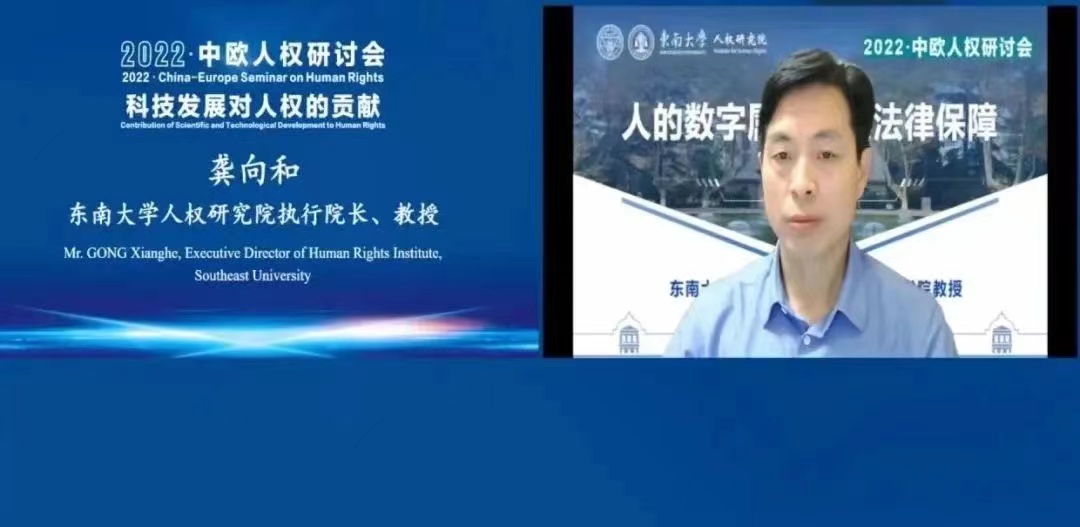
Professor Gong Xianghe, Executive Director of the Institute of Human Rights of Southeast University, spoke on the topic of"'Digital Attributes' of Human and Their Legal Protection". He pointed out that whether the nature of human beings has changed in the digital era, whether the digital attributes of human beings will be expanded, and how these digital attributes can be legally guaranteed have become the basic theoretical issues of digital human rights. He discusses the three aspects of the digital human rights system. He argues that the digital attributes of human beings are the basis for the legitimacy of digital human rights, and that the legal protection of digital attributes should include the establishment of the legal rights of digital people based on the "digital attributes" of human beings, and the construction of a legal obligation system for digital human rights consisting of the obligations of individuals, the business of technology enterprises and the obligations of the state.
Brahmins and Brooms: Technology and Human Rights in India
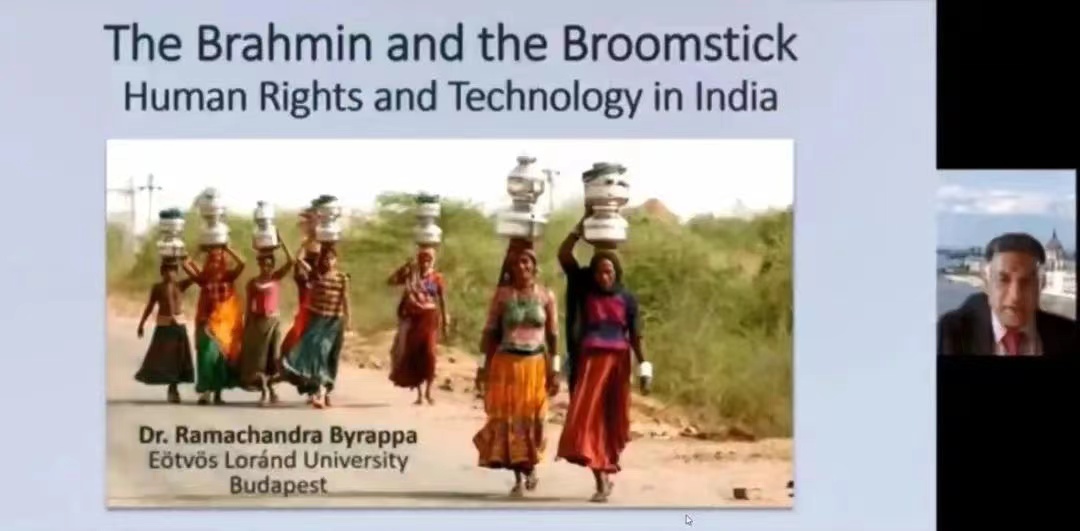
Mr. Ramachandra Byrappa, Associate Professor at the Institute of History, Faculty of Humanities, Eötvös Loránd University (Budapest), Hungary, spoke on the topic of"Brahmins and Brooms: Technology and Human Rights in India". He suggested that in the debate on technology and human rights in India, attention needs to be paid first to the level of development in India. Human rights in India are still a legal framework that does not have much impact on the daily lives of ordinary Indians, and the priority should now be empowerment. The caste system may hinder India's ability to create empowerment and progress. Another noteworthy point was the urban-rural divide. He spoke of the Indian government's inability to stop the growing risk of digital crime in society due to lax regulation. India should take full advantage of the positive role of technology.Technology will help empower the people of India and it will also promote human rights protection in India.
Build a Multi Common Algorithmic Governance System
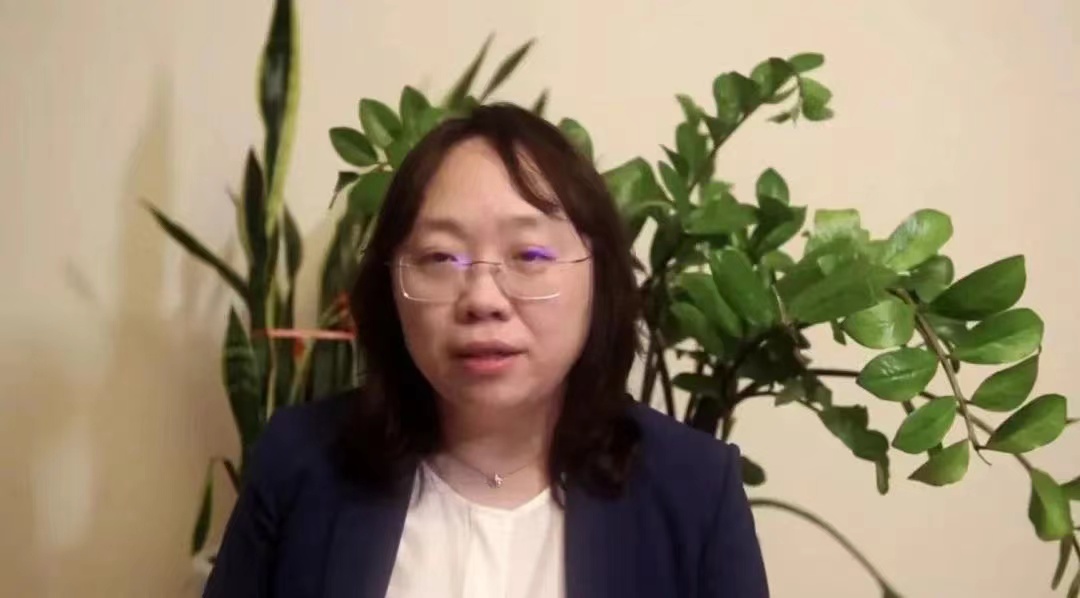
Ms. ZhangJiyu,Executive Director of Renmin Law and Technology InstituteandAssociate ProfessorofSchool of LawofRenmin University of China,spoke on the topic "Build a Multi Common Algorithmic Governance System".She suggested thatall aspectsof production and life is inseparable from digital technology, which brings a series of risks as well as benefits to society. China has made multi-dimensional efforts in algorithmic governance, reflecting the concept of a community of social governance featuring joint contribution, common governance and shared benefits. Algorithmic governance is also faced with a huge gap between technical goals,social goals, extensiveinfluence and the limitation of people's cognition, andplural main body. In order to cope with these problems, she proposed to carry out multi-faceted co-governance from multiple dimensions of government, society, enterprises and citizens, establish and improve the supervision system,responsibility system and promote enterprise innovation to protect human rights in the digital erabetter.
The Human Rights Significance of Ethical Review ofBiomedical Research

Mr. ManHongjie,Deputy Dean of Law SchoolandDeputy Director of Human Rights CenterofShandong University,spoke on the topic of "The Human Rights Significance of Ethical Review ofBiomedical Research". He suggeststhat the COVID-19 hasgivenunprecedented attention and expectations to biomedical research and brought ethical review of biomedical research into the public eye. The legislation of biomedical ethical review has become a widely accepted concept. He pointed out that ethical review is not only the basicpathto ensure that medical research conforms to scientific and ethical principles, but also the institutional cornerstone to guarantee and realize human rights in biomedical research. It is of great significance to look at and understand ethical review from the perspective of human rights. Finally, he believes that ethical review should be carried out from the aspects of life, liberty, personal safety, the right to private and family life, and the protection of vulnerable groups.
Egypt, Human Rights and Science Technology
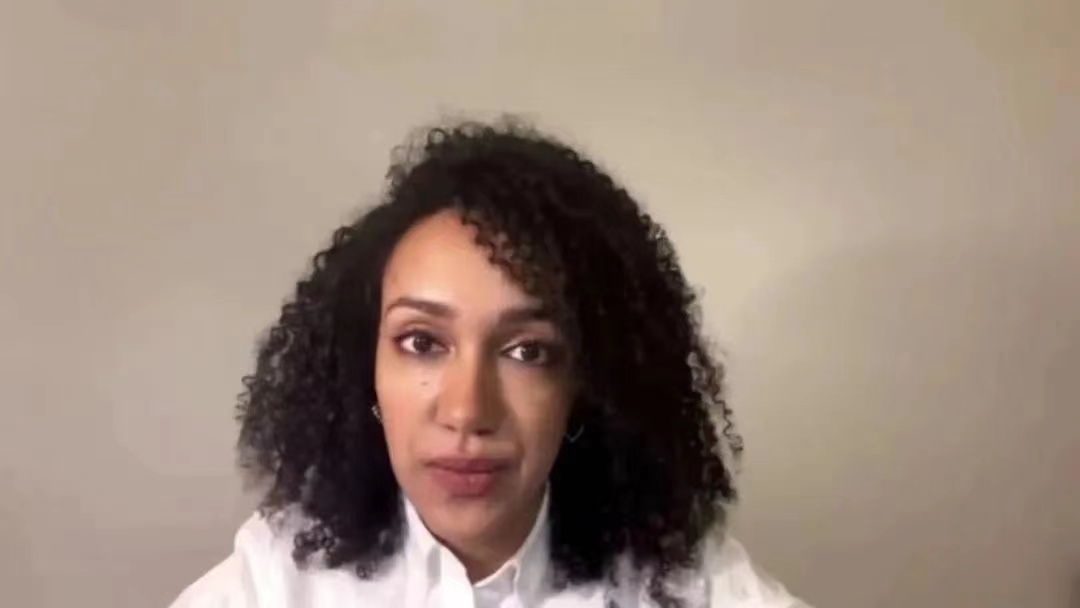
Ms. Mag. Nada Osman,Research Fellow of Austrian Institute for China and Southeast Asia Studies,spoke on the topic ofEgypt, Human Rights and Science Technology.She suggestedthatinternational human rights are universally recognized legal standards and norms,aimingat protecting people's rights from any form of violation. She notedthat social media technology had given usa broad space of freedom,butit had alsoproved to be possibleto limit human rights. In some countries, the misuse of technologies represented by social media, such as human trafficking, and the problem of government surveillance and suppression of freedom ofspeech, are violations of privacy and rights in the digital realm. Therefore, the law should do more to prosecute hackers and digital criminals, reshape and develop the concept of human rights in cyber technology, strengthen science and technology to effectively safeguard human rights, so that individuals can defend their rights.
The Dialectical Unity of Human Rights Protection and Science and Technology
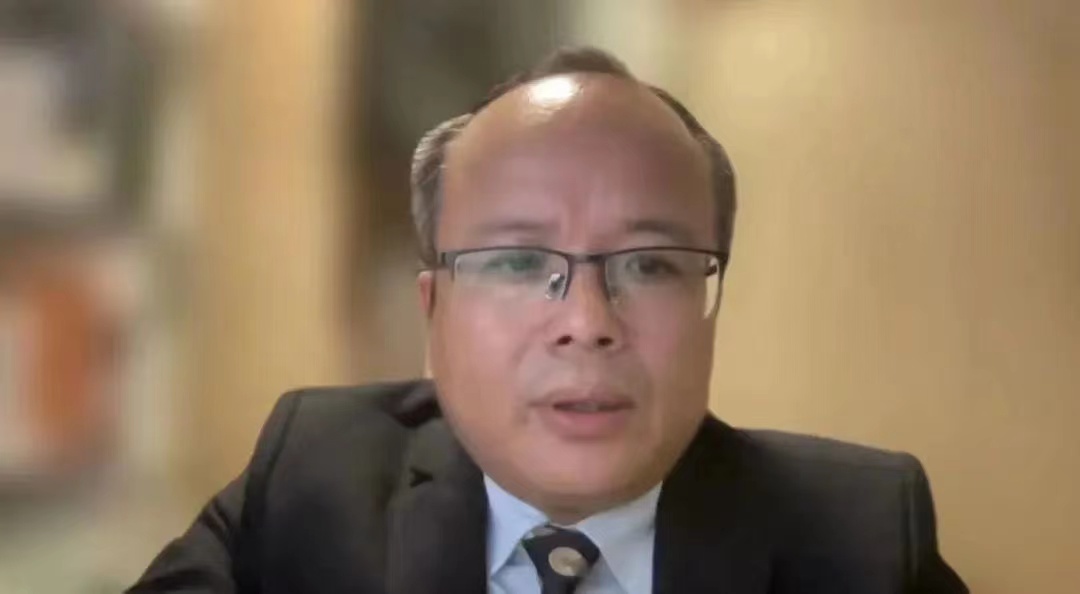
Mr. ChenYouwu,Deputy Dean of Institute for Human RightsofSoutheast University,spoke on the topic of "The Dialectical Unity of Human Rights Protection and Science and Technology"He suggests thatsince the reform and opening up, human rights and science and technologyarethe two wingswhich promotethe rapid development of China. The development and progress of human rights in contemporary China are inseparable and dialectically unified with that of science and technology: The development of science and technology is the source of power for the development of human rights andhaslaida scientific and technological foundation for the protection of human rights in contemporary China,and the progress of human rights cause has put forward higher requirements for the progress of science and technology. He stressedthat the integration of human rights protection and scientific and technological innovation is reflected in the development of human rights discipline construction. He called for the establishment of a first-level discipline on human rights, the establishment of a second-level discipline on human rights science and technology, and the cultivation of high-end talents that integrate human rights protection with scientific and technological innovation.
Ethical Use and Accountability of Artificial Intelligence
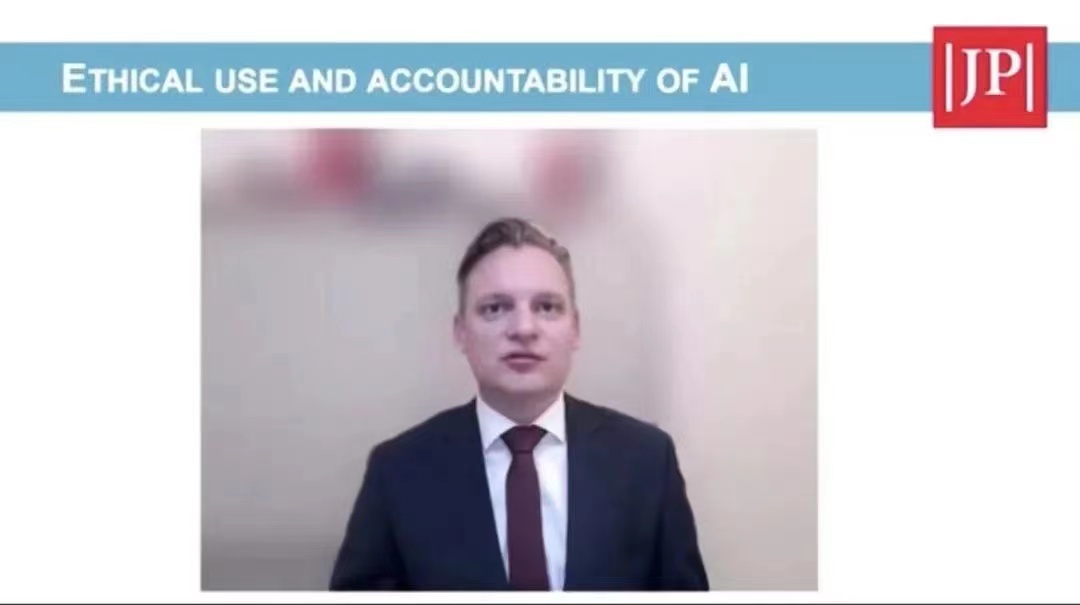
Mr. Martin Pichler,Partner of Jarolim Law Firm, Lawyer of the Austrian-Chinese Law Association,spoke on the topic of "Ethical Use and Accountability of Artificial Intelligence".He suggestedthat artificial intelligence has been widely used, but the law of artificial intelligence is still in its infancy, and there are many problems to be solved, such as how to make the decisions made by artificial intelligence comply with the code of ethics and how to protect data. It is necessary to formulate rules to control it.He pointed out that the formulation power should belong to legislators rather than enterprises. At the same time, EU institutions propose to establish a framework to ensure the credibility of artificial intelligence and an international information certification and licensing authority to meet the challenge. In addition, the emergence of artificial intelligence also poses a severe challenge to human dignity and freedom. Therefore, it isimportantto establish a stable and effective regulatory mechanism to protect human rights.
How Technology Can Promote Human Rights in China
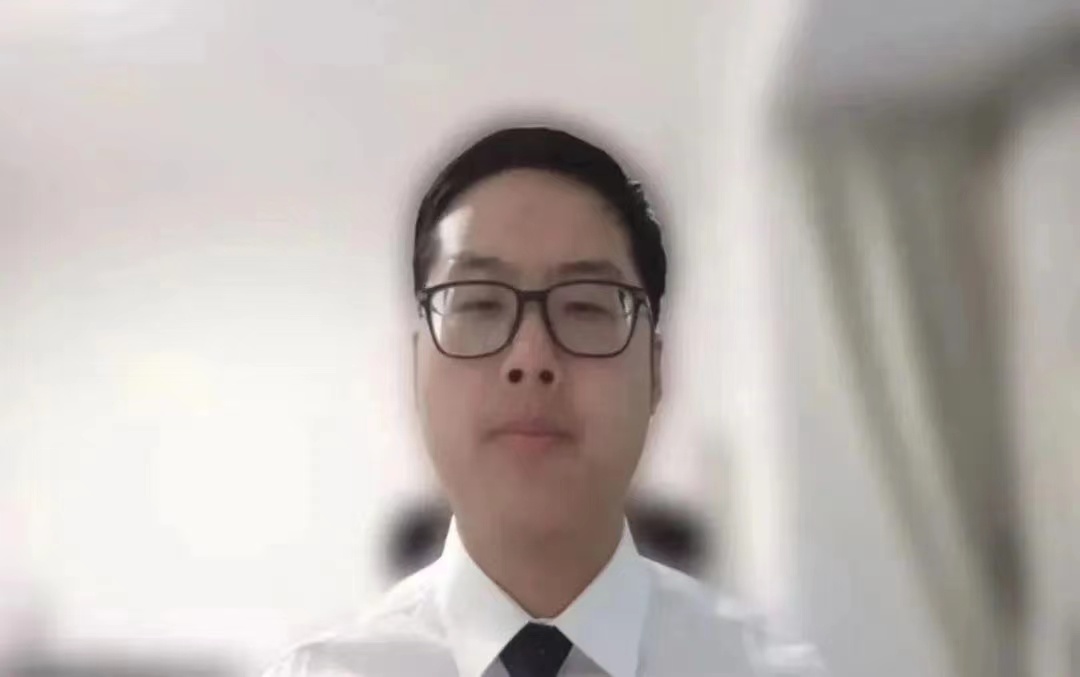
Focusing on the theme of "how science and technology can promote human rights in China", Zhang Zhihao, a domestic reporter ofChina Daily, shared the story of the residents of Zhashui, Shanxi, who still maintained the high output value of agaric industry and successfully lifted themselves out of poverty in the face of the Copenhagen epidemic with the help of advanced science and technology, expounded the view that persisting and protecting the right to survival and the right to development is the primary basic human rights in China, and stressed the elimination of absolute poverty in China is not only the achievement of the Chinese people, but also a great contribution to the progress of human rights in the world. He pointed out that China's fight against poverty is inseparable from science and technology. With its help, the rights of the poor and vulnerable groups to equality, survival, social security, health, education and other social rights have been greatly guaranteed, which demonstrates the Chinese wisdom of China's fight against poverty and its contribution to the world.
Nurturing a Qubit Mindset on Human Rights
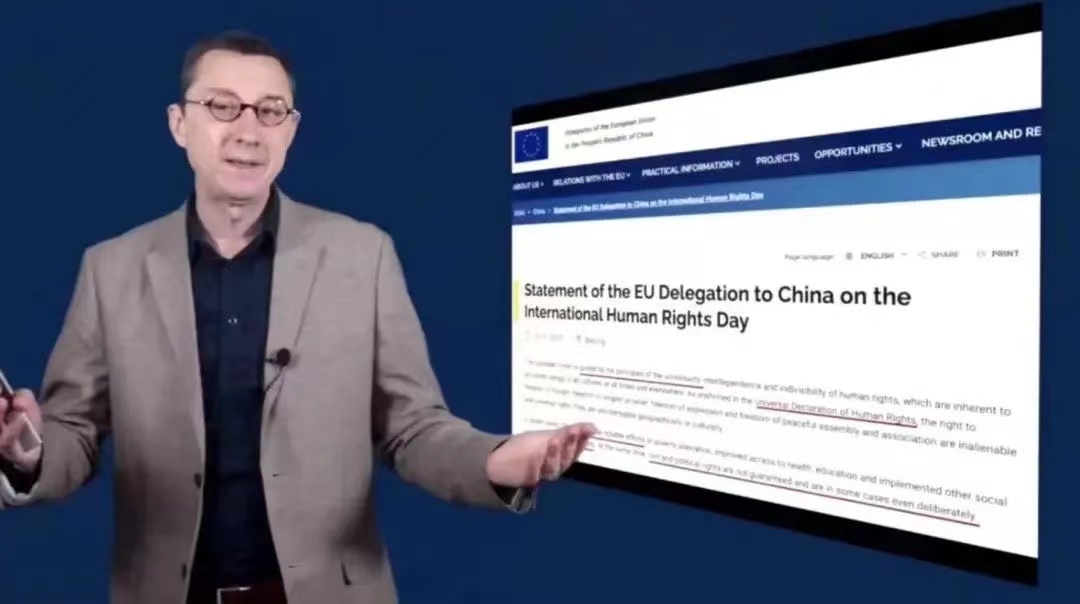
Mr. Pascal Coppens,Visiting Lecturer at London Business School,Partner at nexxworks companyofTechnology EntrepreneurandWriter,spoke on the topic of "Nurturing a Qubit Mindset on Human Rights".He analyzed the thinking differences between China and the EU in the treatment of Technology Trust and human rights trust: how to treat trust within society. Chinese culture pays more attention to collectivity, while Europe pays the opposite. He proposed the "reverse relationship-system trust" model and pointed out that the way of thinking about dealing with trust in relationships is very different from the way of thinking about dealing with trust in systems. He proposed to improve the China-Eu human rights dialogue: change the mode of communication on the basis of clarifying the differences in thinking between China and Europe, and start the dialogue under the relativity of truth until the dialogue is verified in the thinking patterns of both sides. We need to cultivateQubit Mindset, abandon either-or concepts and preconceived prejudices, and achieve mutual trust.
Data Protection from a Human Rights Perspective
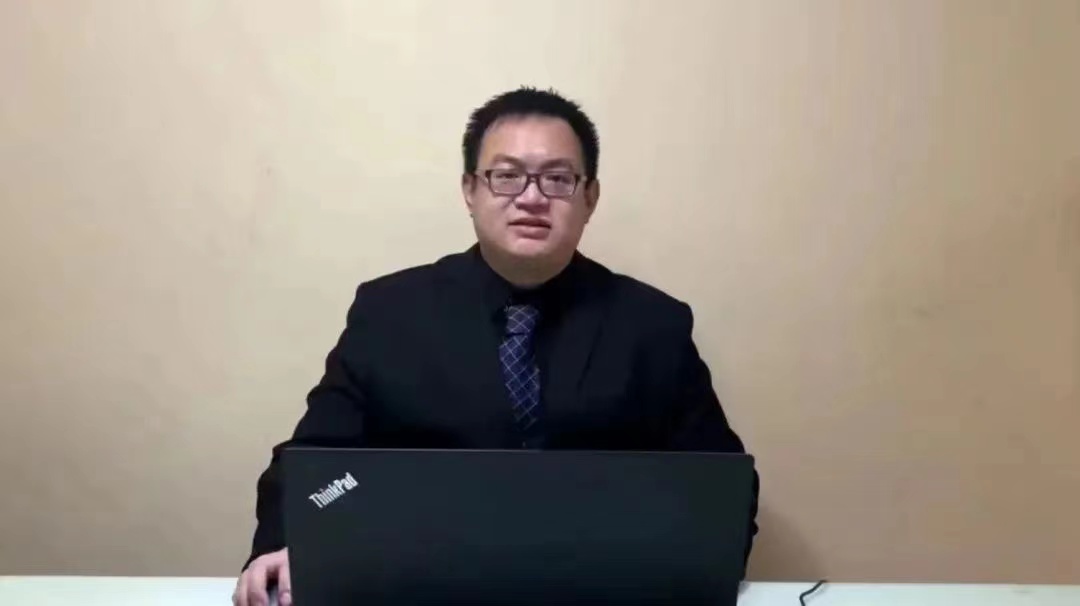
Mr. QianZiyu,Ph.D. CandidateofLaw SchoolatPeking University,spoke on the topic of "Data Protection from a Human Rights Perspective".He suggestedthatdata, as a basic factor of production, plays an important role in production and life, and has become a highly valuable property. The protection of data property rights has multiple aspects. Its significance lies not only in the realization of the property interests of the obliging, but also in the realization of the rights and interests of others and social public interests. From the perspective of human rights, the protection of data property rights is respect for private property and should be fully protected at the legal, administrative and social levels; At the same time, data property rights are related to the realization of other people's basic rights, and should also be subject to necessary restrictions. The protection of data property rights should focus not only on the interactive relationship between people and property, but also on the interactive relationship between people, so as to ensure the coordination andrealization of the basic rights.
Human Rights Protection for "Digitally Vulnerable Groups"
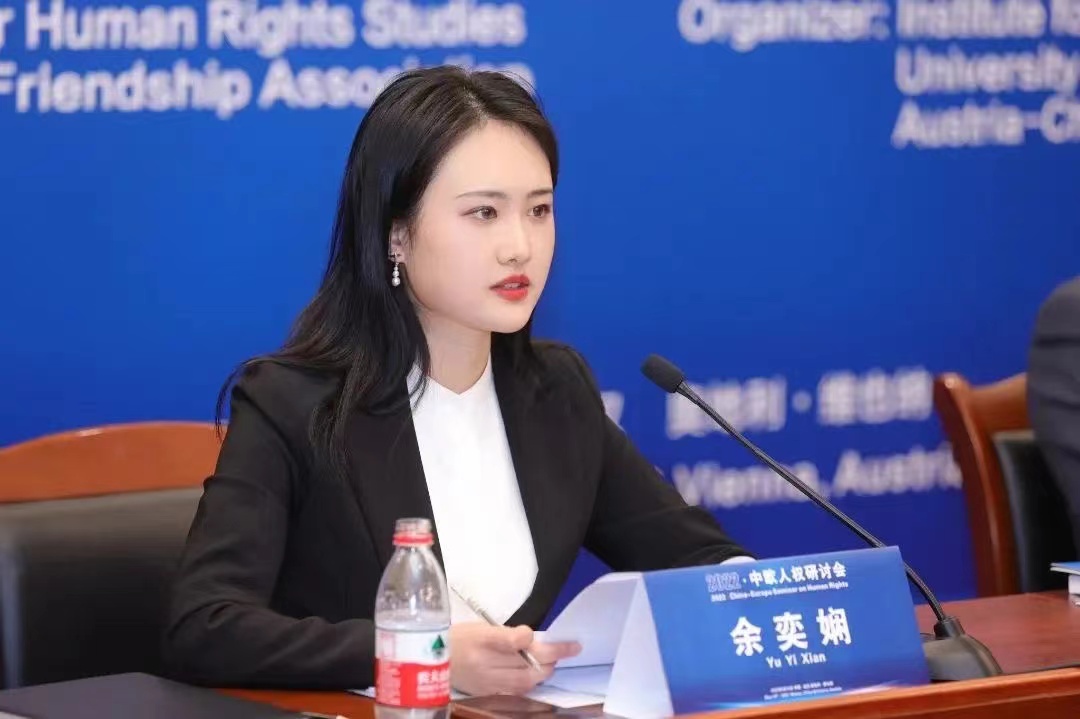
Ms. YuYixian,Postgraduate Student at Institute for Human Rights LawofHuazhong
University of Science and Technology,spoke on the topic of "Human Rights Protection for Digital Vulnerable Groups".She suggestedthatwith the penetration and control of technology and informationonsocial life, the protection of "digitallyvulnerablegroups" is also developing deeper in response to the reality. On the one hand, digital lifestyles inevitably occupytraditional lifestyles to a large extent, making some people become "digital refugees". On the other hand, the digitalization of payment and the networking of learning have raised people's living threshold and marginalized some traditionalvulnerablegroups.Digital human rights are manifested in ensuring that every member of society can truly realize the right to networking and digital life. At the same time, it is also necessary totoleratethe capacity of "digitalvulnerablegroups" and set up a "buffer zone" for their development.
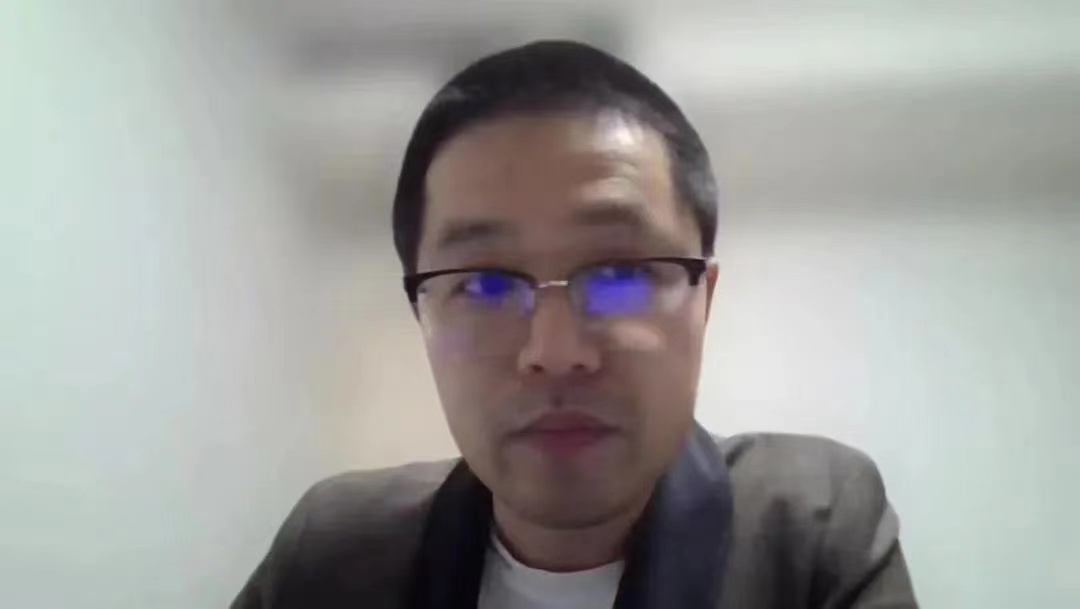
Tang Yong, Vice Dean of the Law School of Zhejiang University of Finance and Economics, made a comment. Scholars reached a series of consensus on science and technology and human rights: First, recognize the contribution of scientific and technological development to human rights and promote the great progress of traditional human rights. For example, science and technology promote the advancement of biomedicine to protect the right to life and health, the popularization of online education to protect the right to education and cultural rights, and the advancement of internet and video technology to promote online human rights dialogue. Second, recognize that the development of science and technology has brought new human rights issues, such as the ownership of artificial intelligence, the digital divide brought about by digital technology, and the human rights and ethics brought about by drug testing. In this sense, science and technology are neutral, and the value of human rights needs to be used to draw boundaries for the development of science and technology. Third, to achieve the integration and complementary development of science and technology and human rights, experts emphasized the importance of participation, regulation and pluralistic co-governance from various dimensions.
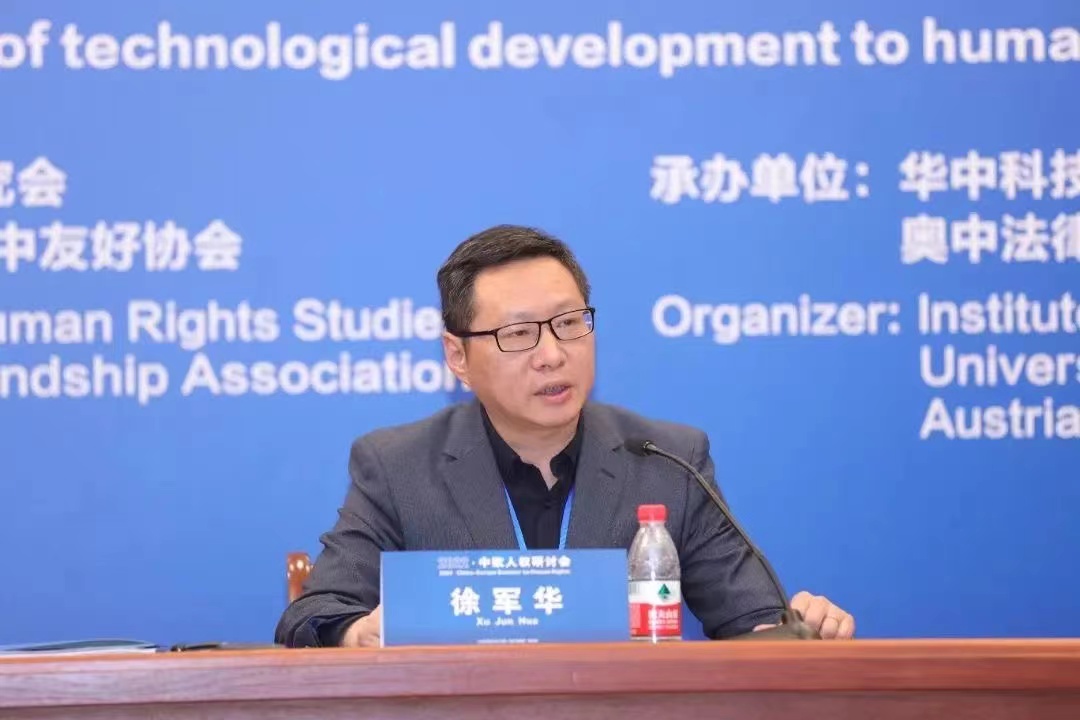
Xu Junhua, Vice Dean of the Law School of Huazhong University of Science and Technology and researcher of the Institute for Human Rights Law, made comments. This conference reflects several characteristics: First, the integration of the dual dimensions of theory and practice. Second, the macro perspective and the micro level are combined. Third, the discussion is closely focused on the challenges and opportunities brought by scientific and technological development to human rights protection. Fourth, a number of new ideas have emerged, such as a pluralistic and co-governing algorithmic system, and a quantum bit way of thinking. Fifth, share examples of technology and human rights from other countries or regions, such as technology empowerment in India and language rights in Africa. He believes that this meeting has expanded the new fields, new topics, new viewpoints and new methods of science,technology and human rights, and further promoted the in-depth study of the complex macro issue of science and technology and human rights.
Professor Chen Youwu shared the discussion of the first sub-forum at the closing ceremony as a representative. He said that the first sub-forum mainly focused on three views: First, on the relationship between science and technology and human rights,science and technology and human rights are indispensable and inseparable, not a one-on-one relationship, the two benign interaction, balanced development. Science and technology have played an active role in the protection of human rights, and human rights have provided an analytical framework for the development of science and technology. Technology by itself does not harm human rights, the key is how it is used. Secondly,regardingthe challenges of scientific and technological development to the protection of human rights., as far as the protection of human rights is concerned, technology is a double-edged sword, and the development of technology has not only provided favorable conditions for the protection of human rights, but also produced new human rights. On the other hand, the development of new technologies, especially digital technologies and artificial intelligence, has led to new human rights issues, bringing challenges to human rights protection, and how to promote the development of science and technology and protect human rights has become a new era issue. Third,as forthe integrated development of science and technology and human rights, the experts of this forum believe that the dialectical unity of human rights protection and science and technology innovation in contemporary China has provided Chinese experience and solutions for the development of global human science and technology. Promoting the development of science and technology and protecting human rights involve many factors: First,todevelopscience and technologybased onhuman rights; Second,toconduct ethical reflection and guidescience and technology to good; third,tostrengthen the guarantee of the rule of law in science and technology,and toimprovelaws and regulations; fourth,torespect the development path of human rights in various countries in global human rights governance and scientific and technological governance, and strengthen cooperation and exchanges in the field of human rights and Science&Technology; fifth,tostrengthen the construction of human rights disciplines, promote the establishment of first-level disciplines of human rights, set up second-level disciplines of human rights science and technology, and cultivate high-end talents in the field of human rights science and technology.
